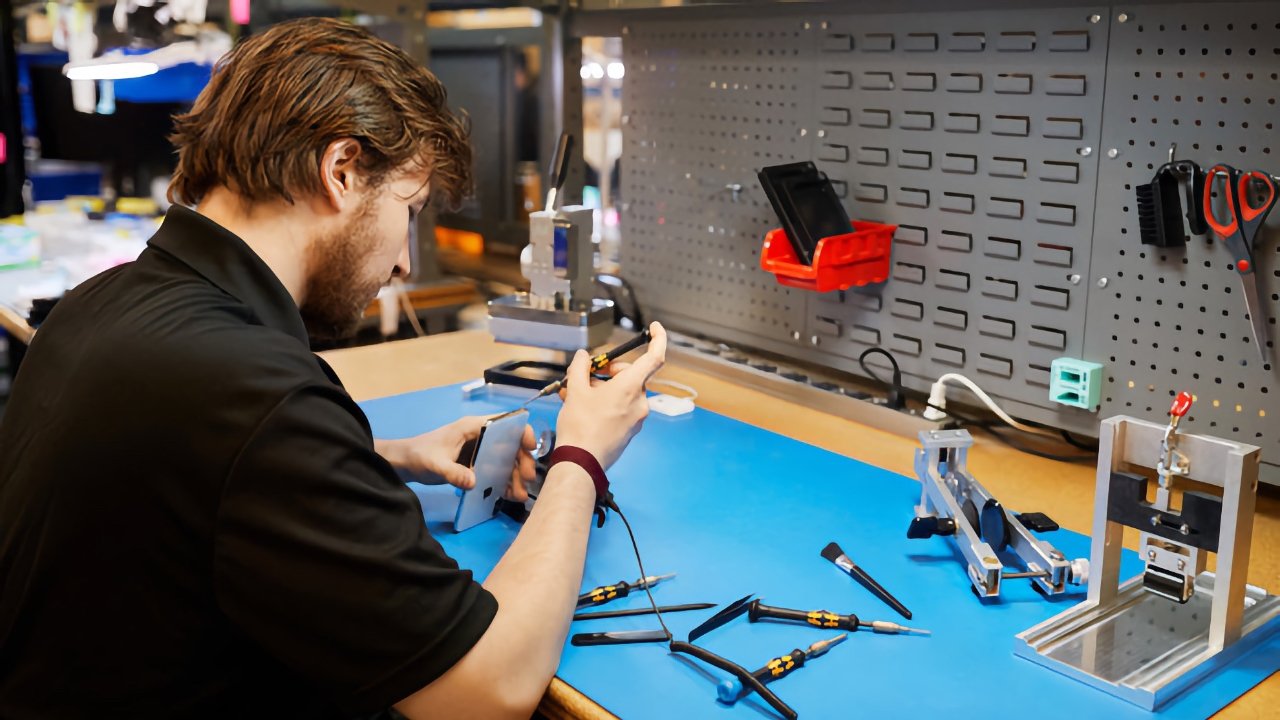FTC pledges to take on unlawful restrictions on right-to-repair
Last updated
For the first time, the FTC has taken a formal stance against unlawful repair restrictions, echoing a position that the White House took less than a week ago.
The conversation surrounding the right-to-repair movement has accelerated recently with new legislation and tech leaders sharing their support. Apple's control of repair parts and authorized facilities make it a prime target for the movement.
The FTC has filed a policy statement taking a stance against unlawful repair practices. The statement was approved unanimously by the FTC and will be used to encourage competition in repair markets with "vigor."
"While efforts by dominant firms to restrict repair markets are not new, changes in technology and more prevalent use of software has created fresh opportunities for companies to limit independent repair," says FTC Chair Lina Khan. "These types of restrictions can significantly raise costs for consumers, stifle innovation, close off business opportunities for independent repair shops, create unnecessary electronic waste, delay timely repairs, and undermine resiliency."
The FTC statement says that the enforcement agency will ramp up efforts against repair restrictions that prevent small businesses, workers, consumers, and even government entities from fixing their own products. For example, while Apple itself is not cited, Apple only allows authorized repair facilities to order replacement parts or access diagnostic tools.
An iPhone user seeking to repair their device must visit Apple itself or choose from a list of repair facilities specifically chosen by Apple. Practically, that means that an average user cannot realistically repair their device, nor can they choose a different repair facility not affiliated with Apple and expect continued warranty coverage.
Apple isn't the only company with strict repair restrictions and part allocation rules. Microsoft has similar issues with the Surface line of products, and the extremely popular Xbox family of gaming consoles. Nintendo and Sony are similar with their gaming hardware as well. The FTC is expected to target any company that makes it difficult for consumers to repair their own devices.
The pledge comes only days after Washington asked the FTC to step up right-to-repair regulations. This FTC decision is among the first major anti-monopoly moves made by Lina Khan after becoming the new chair.
 Wesley Hilliard
Wesley Hilliard














 Amber Neely
Amber Neely
 Thomas Sibilly
Thomas Sibilly
 AppleInsider Staff
AppleInsider Staff
 William Gallagher
William Gallagher
 Malcolm Owen
Malcolm Owen
 Christine McKee
Christine McKee










31 Comments
I have to admit that I’ve changed my mind on Right to Repair. Common things, phone screens and batteries, for example, should be easy and fairly inexpensive. I understand if a particular component needs to be factory replaced for security, a touch ID button for example. But how often do those break. Common repairs though should not be tough or expensive.
This is why I alway purchase Apple care. I also change out my primary iPhone every 2 years. I am a hamradio operator and I do repair electronic equipment. What we are faced with is counterfeit parts. I see 3rd party repair work for Apple devices flooded with cheap knockoff counterfeit parts. Even the most ethical repair shop is going to get these fake parts they are almost impossible to tell from real ones. If I require work on anything Apple it will be Apple that will work on it.
I think the vast majority of Apple product owners will be unaffected by this. I know for myself that I would never, EVER, use a third party repair shop to work on my Apple gear, even a battery replacement. An article elsewhere estimates Apple has lost $3.2B to counterfeit AirPods. imagine the flood of counterfeit parts going to third party repair shops as they struggle to compete against each other. It’s no different than the scam investigations of independent auto repair shops where customers are lied to garner large repair bills. It will be BUYER BEWARE on steroids for Apple owners wanting to get their gear fixed.